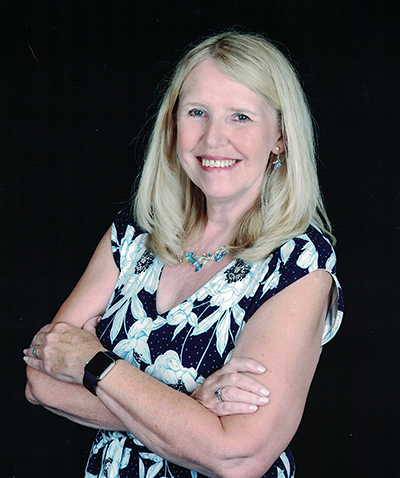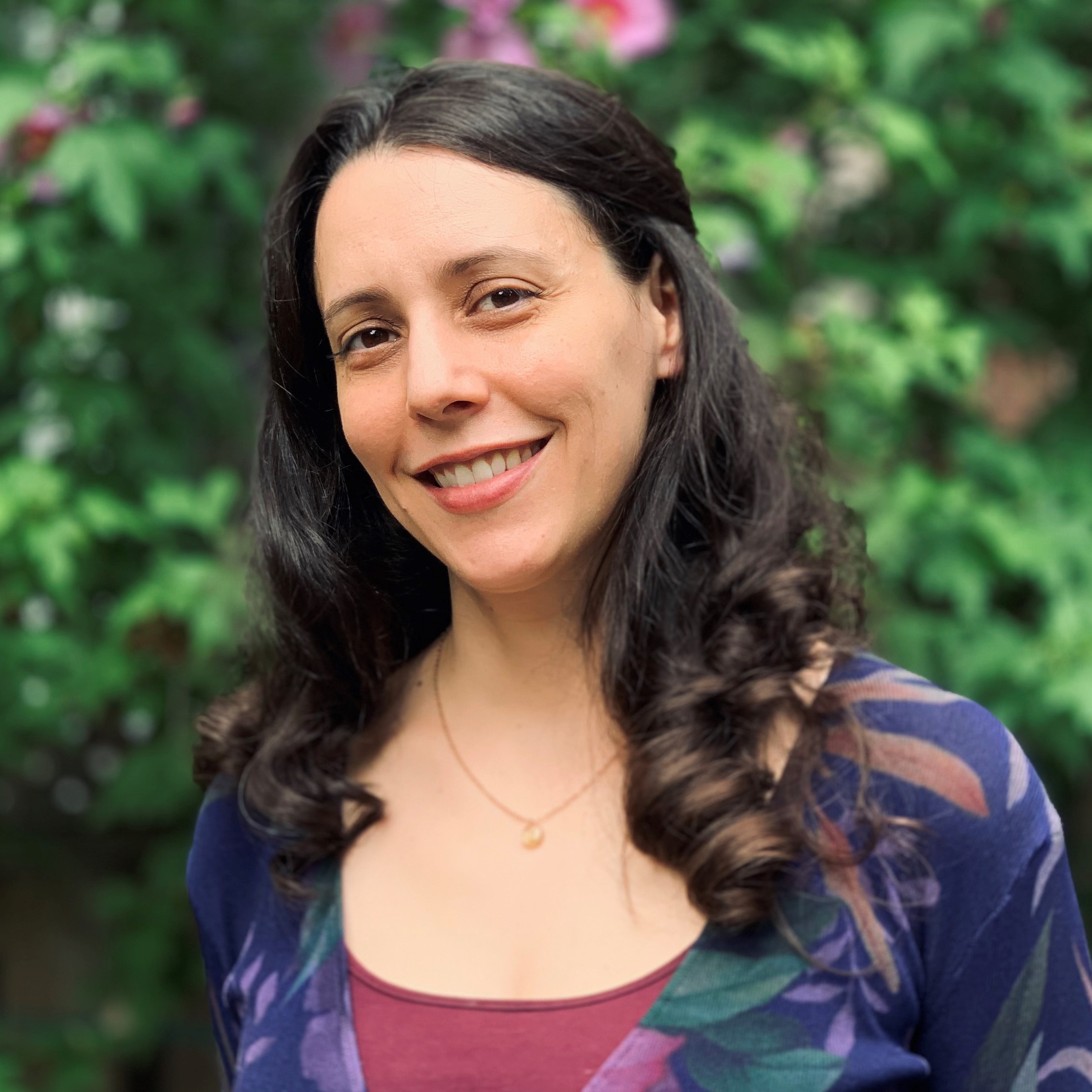CDIE Research
Key Areas of Focus
Exploring, innovating, implementing, and evaluating shifting practices in education.
- Pedagogical Innovation
- Structural Innovation
- Digital Innovation
- Teaching for Innovation
Digital Innovation Faculty Research Grant - 2025
-
Project Title: Representation Matters: Examining the Experiences of Black High School Youth in STEM
 Principal Investigator: Dr. Kenneth Gyamerah, Assistant Professor, Mitch & Leslie Frazer Faculty of Education, Ontario Tech University
Principal Investigator: Dr. Kenneth Gyamerah, Assistant Professor, Mitch & Leslie Frazer Faculty of Education, Ontario Tech UniversityField of Research: STEM Education
Grant Amount: $12,500
This project will evaluate and map existing programs and initiatives aimed at increasing Black youth representation in STEM. Data for the study will be collected through critical document analysis (Grant, 2022; Sankofa, 2023) and scoping review methodology (Arksey & O'Malley, 2005). The critical document analysis will review and evaluate current programs and initiatives that focus on equity, access, and representation of Black youth in STEM. Findings from the document analysis will be used to create a directory of institutions and organizations across Canada that offer initiatives and programs advancing Black youth equity and excellence in STEM. The scoping review will also provide a synthesis of existing research on Black youth experiences and representation in STEM both within Canada and internationally. The findings from this project will lay the foundation for a future Youth Participatory Action Research (YPAR) study which will explore the unique experiences, challenges, and motivations of Black high school students as they navigate K-12 STEM learning environments.
-
Project Title: Exploring AI and Alternative Access for Youth with Complex Communication Challenges

Principal Investigator: Dr. Janette Hughes, Professor and Canada Research Chair in Technology & Pedagogy, Mitch & Leslie Frazer Faculty of Education, Ontario Tech University
Co-Investigator: Dr. Laura Morrison, Assistant Professor, Mitch & Leslie Frazer Faculty of Education, Ontario Tech University
Field of Research: Generative AI and Accessibility
Grant Amount: $12,500
This collaborative project with Grandview Kids explores how alternative access methods and devices might be used to help students with exceptionalities engage with generative AI tools. We draw on the SETT Framework -- students, environments, tasks, tools -- (Zabala, 2020) to gather data and organize information related to using alternative access tools and generative AI applications. It is a continual, dynamic process that underscores the importance of collaboration and engagement (among students, teachers, service providers, researchers). We apply SETT to help guide decision making surrounding appropriate assistive technologies to use when engaging with AI to enhance writing and communication while informing specific interventions as the research team considers each area within the framework. We use qualitative exploratory case study methodology as the compatibility between AI and alternative access is under-explored. Case studies will facilitate a deeper exploration of the multiple contexts related to each student from Grandview Kids and their unique experiences using AI tools through interfacing with selected alternative access methods (e.g., BCI, eye-gaze software, switches). This initial research will involve 8 students, 4 with complex access needs and 4 with typical access. Data sources will include facilitator observation, audio/video recordings of student engagement with the tools, open-ended interviews with students where possible, and interviews with parents/caregivers.
-
Project Title: A Digital Play Framework for Early Learners, Phase II
 Principal Investigator: Dr. Brenda Jacobs, Assistant Teaching Professor, Mitch & Leslie Frazer Faculty of Education, Ontario Tech University
Principal Investigator: Dr. Brenda Jacobs, Assistant Teaching Professor, Mitch & Leslie Frazer Faculty of Education, Ontario Tech UniversityField of Research: Early Childhood Education, Kindergarten
Grant Amount: $12,500
This research project is designed to lay the groundwork for an observational study of digital play in early learning classrooms. The underlying questions for this project are foundational for thinking about digital innovation with early learners: What is play? What is digital play? What are the interconnections between them in the early years? Children do not make the distinction between play and digital play the same way as adults. For children digital play is just play. It builds on and extends their real-world play experiences. The new world of play for young children, contemporary play, is a mixture of overlapping play and digital play practices. While play-based learning in the classroom is well established, the opportunities and appropriate sites for this new world of play is still in development. This project views children’s motivation to engage with digital technologies as an opportunity for teachers to support and enhance these play practices in their classrooms. In play-based classrooms, teachers intentionally observe, plan, and implement activities that provide children with opportunities to learn through play. These activities support children’s social and emotional learning (SEL). Many teachers are, however, struggling to translate this approach to digital play. A Digital Play Framework for Early Learners is intended to provide guidance for these teachers. This framework can be used as a new tool for observing and assessing children’s digital play in the classroom and to plan future activities. It has the potential to ensure that there is equitable access for all early learners to digital play and that the focus will be on interactive learning.
-
Project Title: Mapping the Influence of Artificial Intelligence on K–12 Education Policy in Ontario
 Principal Investigator: Dr. Joelle Rodway, Associate Professor, Mitch & Leslie Frazer Faculty of Education, Ontario Tech University
Principal Investigator: Dr. Joelle Rodway, Associate Professor, Mitch & Leslie Frazer Faculty of Education, Ontario Tech UniversityField of Research: Educational Leadership and Policy
Grant Amount: $12,500
Artificial intelligence (AI) is proliferating K–12 educational contexts in myriad ways ranging from student-focused applications (e.g., intelligent tutoring systems and automatic formative assessment) to teacher-focused applications (e.g., plagiarism detection and AI teaching assistants) to institution-focused applications (e.g., admissions, course planning, and school security). However, despite work at the federal and provincial levels to develop policies and frameworks that inform AI use in Canadian society (e.g., Pan-Canadian Artificial Intelligence Strategy; Artificial Intelligence and Data Act; Ontario’s Trustworthy AI Framework), there is very little explicit guidance on its application in public education settings despite many significant concerns about ethical use, bias, misinformation, and privacy.
This project focuses on how professional organizations supporting Ontario’s educational leaders (i.e., system, school, and teacher leaders) are navigating the provincial educational policy landscape as it relates to the use of AI in publicly-funded school systems. The objectives of this research include: i) describe the ways in which AI is affecting the work of educational leaders and the organizations that support them; ii) identify how these organizations are developing their own policies, guidelines, advisories, and/or frameworks in response to issues and concerns raised by educational leaders; and, iii) articulate the enablers and barriers to this work within the present education context. Through an analysis of conversations with provincial educational leaders from organizations such as the Council of Directors of Education (CODE), the Ontario Principals’ Council (OPC), and the Ontario Teachers’ Federation (OTF) among others, this research will offer preliminary insights and identify current system needs related to the integration of AI in the Ontario public education.
Digital Innovation Faculty Research Grant - 2024
-
Project Title: A Digital Play Framework for Early Learners

Principal Investigator: Dr. Brenda Jacobs, Assistant Teaching Professor, Mitch & Leslie Frazer Faculty of Education, Ontario Tech University
Field of Research: Early Childhood Education, Kindergarten
Grant Amount: $10,000
There is a consensus among researchers that play is beneficial to children’s learning and development. In recent years, as digital technology became a venue for children’s play, the idea of digital play has emerged. Broadly speaking, digital play can be described as a voluntary, energizing activity that involves using digital technologies to support children’s learning and development. It includes activities related to video and computer games, apps, Internet sites and search engines, electronic toys, mobile technologies, smart phones, iPads and tablets, makerspaces, and the creation of digital content. While play-based learning in the classroom is well established, the opportunities and appropriate sites for digital play is still evolving. In play-based Kindergartens, children learn through play and educators assess children’s play to promote further learning. Many educators are struggling, however, to translate this approach to digital play. One innovative approach to help educators has been the introduction of a Digital Play Framework, which can be used by educators as a new tool for observing and assessing, both formatively and summatively, children’s digital play in the classroom. My proposal is to develop a new framework focused on young children. This research project is designed to lay the groundwork for a study of digital play in early learning classrooms that can guide conclusions about what are the opportunities and appropriate sites for digital play, leading to the establishment of a Digital Play Framework for Early Learners.
-
Project Title: Design and implementation of an authentic mathematics curriculum for grades 7-10

Co-Investigators: Dr. Ami Mamolo, Associate Professor, Mitch & Leslie Frazer Faculty of Education, Ontario Tech University and Peter Taylor, Queen's University
Field of Research: Mathematic Curriculum
Grant Amount: $10,000
Dr. Ami Mamolo and Peter Taylor (Queen’s University) lead an interdisciplinary team of education researchers, mathematicians, and practicing teachers in a project that seeks to enhance collaboration and capacity for developing and enacting an authentic and meaningful mathematics curriculum that values human flourishing. For decades mathematics educators have warned that the current school mathematics curriculum is overly technical and poorly designed to prepare our students for the world they will encounter. They have called for a curriculum that focuses on creative activity, on doing and playing, and on analyzing complex systems and structures. A curriculum that, in short, realizes the beauty, power, and artistry of mathematics. Our project responds to this call by leveraging the transformative learning capabilities of digital technologies to design and construct activities that cultivate mathematical strength, creativity, and growth, and nurture students as “mathematical artists."
-
Project Title: Navigating the hyflex horizon: Uncovering successes and hurdles in hyflex

Principal Investigator: Dr. Laura Morrison, Assistant Professor, Mitch & Leslie Frazer Faculty of Education, Ontario Tech University
Field of Research: Hyflex Teaching and Learning in Undergraduate Education
Grant Amount: $10,000
Our research investigates a socio-constructivist approach to HyFlex teaching and learning in undergraduate education, aiming to balance flexibility with the creation of cohesive, collaborative learning communities. HyFlex education, which enables students to participate in in-person, synchronous online, or asynchronous formats, offers adaptability that is crucial for students managing diverse responsibilities. While this model enhances accessibility, it presents challenges, such as a fragmented sense of community and difficulty sustaining a socio-constructivist learning environment across varied participation modes. This study explores strategies to address these challenges, focusing on ways to support continuity, enhance peer collaboration, and improve technological consistency within the HyFlex framework. Our study employs Participatory Action Research (PAR) (Kemmis & McTaggart, 2007) to collaboratively design, develop, implement and reflect on socio-constructivism and the HyFlex model in undergraduate Educational Studies courses. Alongside PAR, we are using a Design-Based Research (DBR) approach (Barab & Squire, 2004), an iterative method allowing us to refine the HyFlex structure in response to classroom realities over multiple iterations. We are now in iteration three of four.